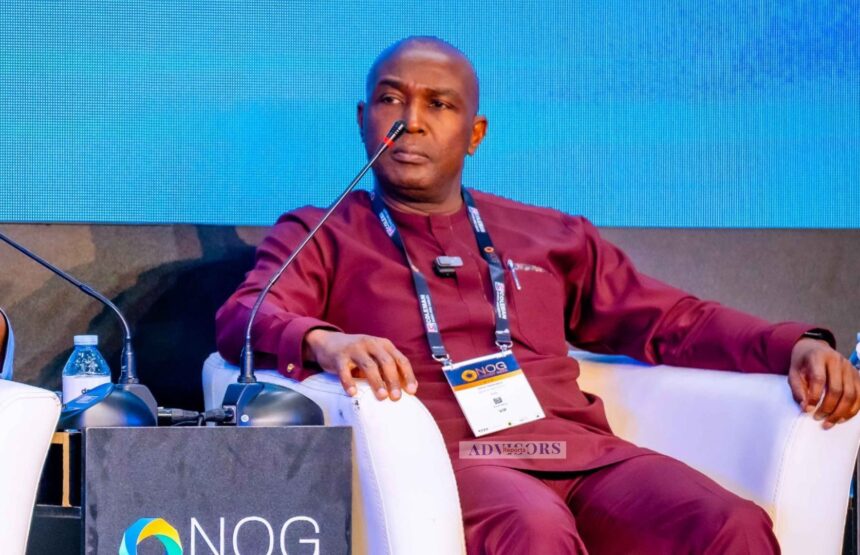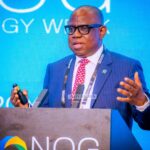…calls for asset integration, capital efficiency to unlock long-term value in gas sector
Oredola Adeola
Dr. Philip Mshelbila, Managing Director and CEO of NLNG, has urged gas industry stakeholders to prioritize production and domestic utilization, collaborate with the government to eliminate persistent bottlenecks, and focus on tangible performance over rhetoric to enhance Nigeria’s global competitiveness in the energy sector.
He made this remark during a strategic panel session on the theme “Accelerating Gas Development for Domestic & Global Energy Needs” at the ongoing NOG Energy Week in Abuja.
According to him, longstanding bottlenecks in Nigeria’s gas sector have eased, while recent reforms have led to significant progress and renewed investment momentum.
Dr. Mshelbila said, “We need to have the sufficient volume of gas. We should be able to produce and then transport them to where they are needed.
“There were periods where we did not have enough supply to produce, and sometimes when we did produce, we did not have sufficient capacity to transport them. The truth is that many of these issues have been tackled.
“Petroleum Industry Act (PIA) has dealt with many of these bottlenecks. And with a lot of governance and regulatory issues being addressed, this has enabled NNPC to play its role more effectively,” he said.
According to him, a better fiscal environment and targeted policies initiated by this administration have begun to attract foreign direct investment into the gas sector.
He said, “The moment the Presidential Directive for Gas was announced, the FDI started to come into the gas space due to the fiscal environment.
“At NLNG, we saw the growth of supply coming into our system, and many more are imminent,” he said.
Dr. Mshelbila further stressed the importance of strategic asset coordination and capital efficiency in delivering long-term value to the market:
“We need to look at far more integrations, better integration of all available assets within the gas value chain.
“This is the far more efficient method for all industry players to save more money and deliver value,” he said.
He also called for a broader outlook beyond NLNG’s existing operations, advocating for diverse gas infrastructure investments, including floating LNG.
He said, “We can look at domestic possibilities to impact the delivery of more gas for domestic and global purposes.
“We need to look beyond NLNG and increase investment in Floating LNG and other investments to unlock the country’s gas potentials. We have done it before and can do it again.”
Drawing comparisons between Nigeria and Qatar, he said, “Qatar started in 1997 and is aiming at over 140 million tonnes per annum, while Nigeria started in 1999, and we are patting ourselves on the back for getting to 30 mtpa.
Calling for a change in mindset, Dr. Mshelbila warned that empty discussions without measurable performance discourage serious investment:
“We have to start changing the narrative. Talk as much as you want, but if the results are not there, if performance is not there, and if people cannot invest their monies and get returns, then we are just wasting time talking.
“The narrative has to be about performance, creating the environment that will allow investment to grow and bring returns to stakeholders, and ensure that you continue to grow into the future.
“This is where stakeholders come to the table: regulators, investors, community, must come together to make this work.
“Once we get that, we don’t have to go after chasing the narrative. It must speak for itself. Qatar is not out there advertising what it has, the world sees it.
“The moment the U.S. started fracking, they unlocked so much gas potential. They don’t have to go advertising,” the MD/CEO NLNG said.



